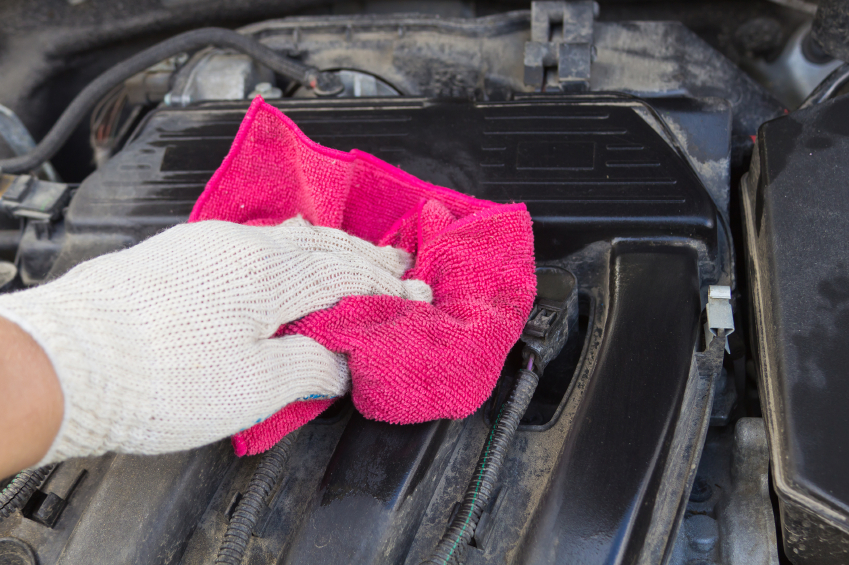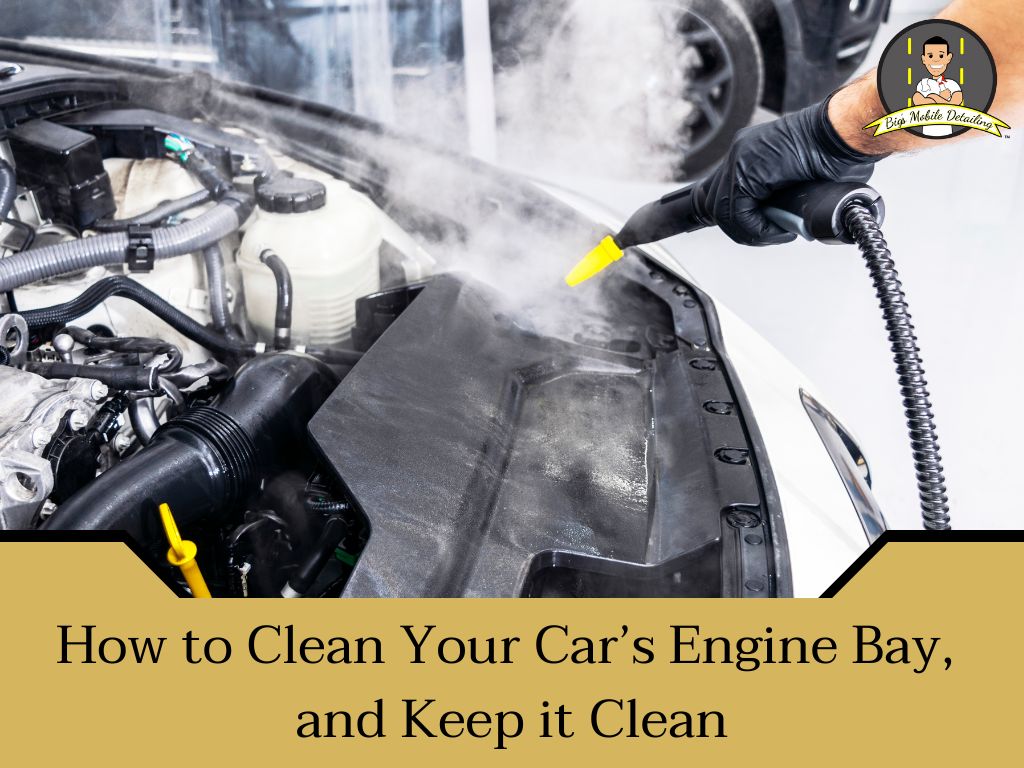Yes, car engines need to be cleaned periodically. Regular cleaning helps maintain engine performance and longevity.
Keeping your car engine clean is essential for optimal performance and longevity. Over time, dirt, grime, and oil can build up, affecting efficiency and leading to potential issues. Regular cleaning can prevent corrosion and help in identifying leaks or other problems early.
A clean engine runs cooler and operates more efficiently, ultimately saving you money on fuel. Many car owners overlook this important maintenance task, but it can make a significant difference. Investing a little time in engine cleanliness can enhance your vehicle’s overall performance and lifespan.

Credit: bigsmobile.com
Introduction To Car Engine Cleaning
Cleaning your car’s engine is essential for its health. It can improve performance and extend the engine’s life. A clean engine also helps in spotting leaks early. Let’s explore why engine cleaning matters.
Why Consider Cleaning Your Engine?
Cleaning your engine offers several benefits:
- Improved Efficiency: A clean engine runs smoother.
- Better Fuel Economy: Dirt can affect fuel consumption.
- Longer Lifespan: Regular cleaning prevents buildup.
- Enhanced Resale Value: A clean engine looks better to buyers.
- Spotting Issues: Clean engines reveal leaks and cracks.
Common Myths About Engine Cleaning
Many myths surround engine cleaning. Here are some common misconceptions:
| Myth | Fact |
|---|---|
| Engine cleaning is unnecessary. | Regular cleaning improves efficiency and longevity. |
| Cleaning can damage the engine. | Proper techniques ensure safety and effectiveness. |
| Only mechanics can clean engines. | Many owners can do it safely at home. |
| All cleaners are the same. | Different cleaners suit different engine types. |
Understanding these myths helps in making informed decisions.

Credit: resource-center.meineke.com
Benefits Of Cleaning Your Car Engine
Cleaning your car engine offers many benefits. A clean engine runs better. It can save you money and time. Let’s explore the key advantages.
Improved Performance And Efficiency
Cleaning your car engine can lead to better performance. Here are the main reasons:
- Enhanced Fuel Efficiency: A clean engine burns fuel more effectively.
- Better Power Output: Dirt and grime can block parts. Cleaning helps restore power.
- Reduced Emissions: A clean engine produces fewer harmful gases.
Overall, a clean engine runs smoother and uses less fuel.
Extended Engine Life
A clean engine can last longer. Regular cleaning prevents wear and tear. Here are some benefits:
| Benefit | Description |
|---|---|
| Prevents Corrosion | Cleaning removes harmful substances that cause rust. |
| Reduces Overheating | Debris can block airflow. A clean engine cools better. |
| Lower Repair Costs | Regular cleaning reduces the need for expensive repairs. |
In short, cleaning your engine helps it last longer. It saves you money on repairs.
Potential Risks And Drawbacks
Cleaning car engines can be beneficial, but it also has risks. Understanding these risks is essential before proceeding.
Water Damage Concerns
Using water to clean an engine can lead to serious problems. Water can enter sensitive areas, causing damage.
- Electrical Systems: Water can short circuit electrical components.
- Engine Oil: Mixing water with oil can reduce lubrication.
- Corrosion: Water can cause rust and corrosion in metal parts.
Dislodging Critical Components
High-pressure washing can dislodge essential engine parts. This can lead to performance issues.
- Loose Connections: Cleaners can loosen hoses and wires.
- Filters: Dirt can clog filters and reduce efficiency.
- Seals: Damaged seals can lead to leaks and failures.
Always be cautious. Avoid using too much pressure or water.
When Should You Clean Your Car Engine?
Cleaning your car engine is important for its performance. Dirt and grime can build up over time. Knowing when to clean is key to engine health. Regular maintenance can prevent bigger issues down the line.
Signs Your Engine Needs Cleaning
- Visible Dirt and Grime: Look for noticeable buildup on engine parts.
- Overheating: An overheated engine may signal dirt blocking airflow.
- Strange Noises: Unusual sounds can indicate debris in the engine.
- Leakage: Oil or fluid leaks may suggest engine cleanliness issues.
- Reduced Performance: A drop in power or efficiency can mean it’s time to clean.
Recommended Frequency For Engine Cleaning
| Vehicle Type | Cleaning Frequency |
|---|---|
| Regular Cars | Every 30,000 miles |
| Off-Road Vehicles | Every 15,000 miles |
| Older Cars | Every 20,000 miles |
| Luxury Cars | Every 25,000 miles |
Check your owner’s manual for specific recommendations. Each vehicle may have different needs. Keeping your engine clean ensures smooth operation.
Choosing The Right Method For Engine Cleaning
Cleaning your car engine is important for its performance. However, selecting the right method is crucial. Different techniques work best for various needs and skills. Here are two main options: DIY cleaning techniques and professional services.
Diy Cleaning Techniques
DIY engine cleaning can save money. It requires basic tools and some preparation. Here are some effective techniques:
- Degreaser Spray: Use a degreaser to remove grime.
- Brush and Water: Scrub with a brush and warm water.
- Compressed Air: Blow out dust and debris.
Follow these steps for DIY cleaning:
- Gather necessary tools: degreaser, brush, bucket, and hose.
- Allow the engine to cool completely.
- Disconnect the battery for safety.
- Cover sensitive parts with plastic.
- Apply degreaser and scrub with a brush.
- Rinse with water and dry with compressed air.
Professional Engine Cleaning Services
Choosing professional services can be a wise investment. Experts use advanced techniques and equipment. Here are some benefits:
- Thorough Cleaning: Professionals clean areas that DIY cannot reach.
- Expertise: Trained technicians know the best methods.
- Time-Saving: Saves you time and effort.
Consider these factors before hiring a service:
| Factor | Details |
|---|---|
| Cost | Compare prices from different services. |
| Reviews | Check customer feedback for quality. |
| Experience | Look for well-established companies. |
Both DIY and professional methods have their pros and cons. Choose the one that suits your needs and skills best.
Step-by-step Guide To Cleaning Your Engine At Home
Cleaning your car engine can improve performance and longevity. Follow this guide for a safe and effective cleaning process. Gather supplies, take safety precautions, and enjoy a cleaner engine.
Gathering Necessary Supplies
- Engine degreaser
- Water hose
- Soft brush
- Microfiber cloths
- Plastic bags
- Protective gloves
- Safety goggles
Safety Precautions And Preparations
- Ensure the engine is cool.
- Disconnect the battery to prevent shocks.
- Cover sensitive parts with plastic bags.
- Wear protective gloves and goggles.
- Work in a well-ventilated area.
Follow these steps carefully to clean your engine without damage. A clean engine runs better and lasts longer.
Maintaining A Clean Engine
Keeping your car engine clean is essential. A clean engine runs better and lasts longer. Dirt and grime can cause serious issues. Regular maintenance ensures optimal performance.
Regular Checks And Balances
Regular checks help catch problems early. Follow these simple steps:
- Inspect the engine bay every month.
- Look for signs of dirt and oil leaks.
- Check air filters for clogs.
- Monitor fluid levels regularly.
Use these tools for effective checks:
| Tool | Purpose |
|---|---|
| Flashlight | Spot hidden dirt and leaks. |
| Rags | Wipe away grime. |
| Vacuum | Remove dust and debris. |
Preventive Measures To Avoid Dirt Build-up
Taking preventive measures keeps your engine clean. Here are effective strategies:
- Use a quality engine cover.
- Park in a garage or covered area.
- Change oil regularly to prevent sludge.
- Use a high-quality air filter.
Consider these cleaning techniques:
- Use degreasers for tough grime.
- Wash engine with water sparingly.
- Dry the area thoroughly after cleaning.
A clean engine is vital for your car’s health. Regular maintenance saves time and money.

Credit: bigsmobile.com
Conclusion And Best Practices
Cleaning your car engine is vital for its performance. A clean engine runs efficiently and lasts longer. It also helps in identifying potential problems early.
Summarizing The Importance Of Engine Cleaning
Keeping your engine clean offers many benefits:
- Improved Performance: A clean engine runs smoother.
- Fuel Efficiency: Less dirt means better fuel economy.
- Extended Lifespan: Regular cleaning prevents wear and tear.
- Early Problem Detection: Spot leaks or issues quickly.
Final Tips For Keeping Your Engine In Top Condition
Follow these tips to maintain a clean engine:
- Regular Inspections: Check your engine every few months.
- Use Engine Degreaser: Apply a degreaser before rinsing.
- Cover Sensitive Parts: Protect electrical components from water.
- Keep Oil Fresh: Change engine oil regularly.
- Check Air Filters: Replace dirty filters for better airflow.
Consider a professional cleaning every year. This ensures thorough cleaning without damage. A clean engine contributes to overall vehicle health.
Frequently Asked Questions
Do Car Engines Require Regular Cleaning?
Yes, car engines should be cleaned periodically to remove dirt and debris, promoting better performance and longevity.
What Are The Benefits Of Cleaning A Car Engine?
Cleaning a car engine improves efficiency, prevents overheating, and helps identify potential issues early on.
How Often Should I Clean My Engine?
Typically, cleaning every 30,000 miles is recommended, but check your vehicle’s manual for specific guidance.
Can I Clean My Engine Myself?
Yes, you can clean your engine using appropriate products and methods, but ensure you follow safety precautions.
Conclusion
Cleaning your car engine can enhance performance and extend its lifespan. Regular maintenance helps prevent buildup and costly repairs. A clean engine runs more efficiently, saving you money on fuel. Prioritize engine cleaning as part of your overall vehicle care routine.
This simple step can make a significant difference in your car’s health.
